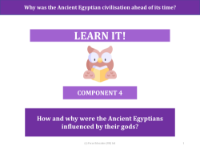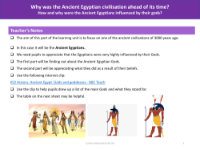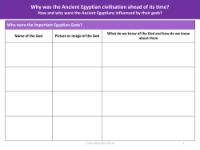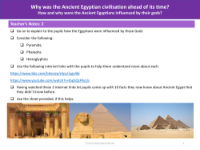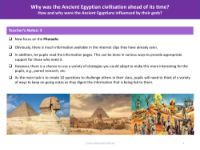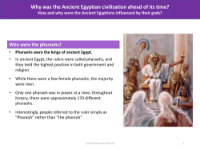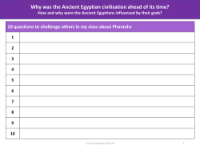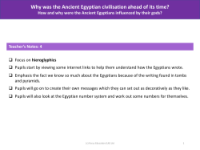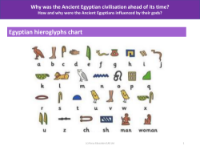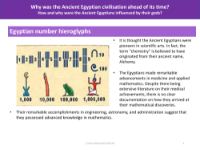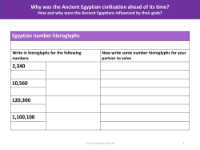10 things I now know about the Ancient Egyptians
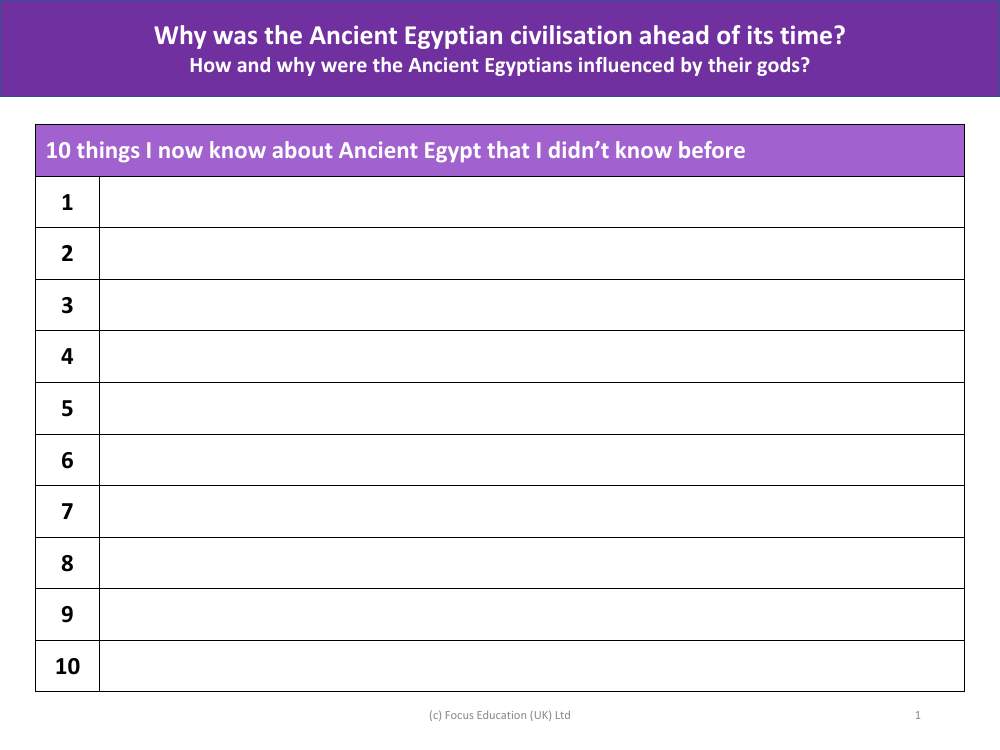
History Resource Description
The Ancient Egyptian civilisation is renowned for its remarkable achievements and was considered ahead of its time for several reasons. One of the key factors contributing to their advanced society was the Nile River, which provided a fertile land for agriculture, enabling a stable food supply and the development of a complex society. Their sophisticated understanding of irrigation and farming techniques allowed them to harvest crops such as wheat and barley effectively. Moreover, the Ancient Egyptians were pioneers in the field of medicine, with medical knowledge that included practical surgery and an array of medicinal plants. They also developed a system of writing, hieroglyphics, which was used for record-keeping and religious texts, reflecting a highly organised and literate culture.
Religion played a central role in Ancient Egyptian society, with the belief in a pantheon of gods influencing every aspect of life, from governance and law to daily routines and cultural practices. The Egyptians built monumental structures, such as temples and pyramids, to honour their deities and facilitate religious ceremonies. These gods were thought to control natural forces and aspects of human existence, which led the Egyptians to perform rituals and offer sacrifices to gain favour and ensure harmony. The concept of an afterlife, overseen by gods like Osiris and Anubis, was particularly significant, driving the practice of mummification and the construction of elaborate tombs to prepare for the journey to the next world. This deep-seated religious culture reflects how the Ancient Egyptians sought to understand and influence their environment and destiny through divine relationships.
